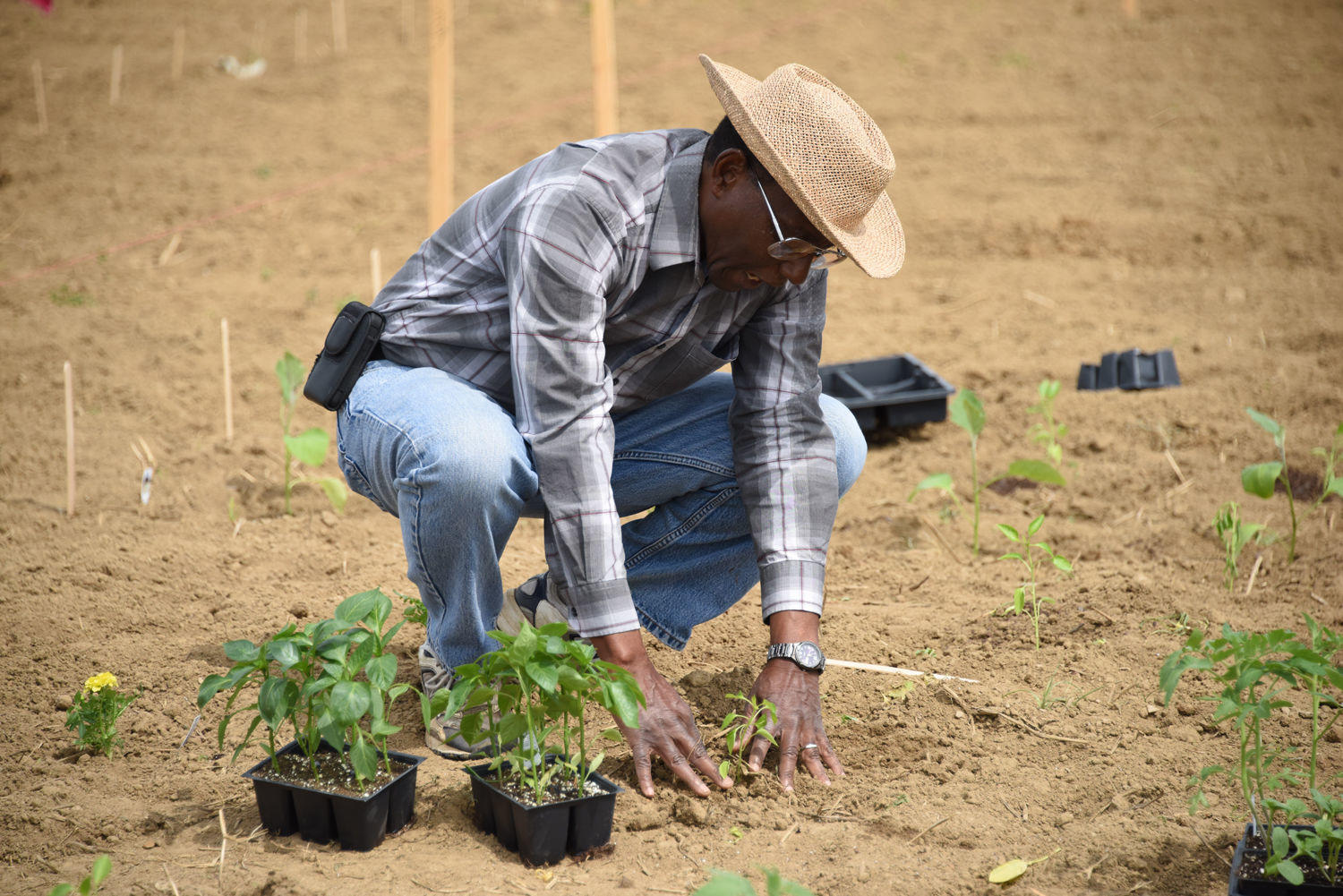April is National Gardening Month, and spring is usually the season when some people get the green thumb itch. In 2017, more than 117 million people involved themselves in gardening.
Dr. James E. Brown, professor and interim program leader of agriculture and natural resources at Fort Valley State University, said a person can reap health and financial benefits when gardening is done effectively.
The veteran horticulturalist added that in addition to growing food, gardeners receive exercise while planting, pruning and harvesting their crops. “This is beneficial for the body by helping the gardener reduce weight, making them feel better,” Brown said.
Most gardening projects begin in early spring, but some crops grow better in warm seasons while others thrive during cooler seasons. Brown said these are key factors that determine the best time to plant.
The FVSU professor says some of the warm season crops in Georgia include watermelons, okra, bell peppers, tomatoes and cantaloupe. Early spring or the beginning of April is the best time to plant these. He said the best time to start planting a garden is after the last frost of the year, and the closer a gardener is to the equator, the sooner one can start planting warm season produce.
“Most of your greens such as turnip, collards, mustards or cauliflower, are cool season crops. In Georgia, you want to plant those in the early part of February or first or second part of March so they can fully mature before the hot weather sets in,” Brown said.
Brown suggests that before starting a garden, contact a local county Extension agent for advice. They can provide information on where to locate the garden, how to take soil samples and where to send them. Agents can also suggest what crops should be planted based on the garden’s soil and proper types and amounts of insecticide, fertilizer or lime.
Below are a few helpful gardening tips:
- Do not locate a garden site near the north side of a home, under shady trees, or on land that is wet, heavily stony, or rocky. Make sure the site can receive 6 to 8 hours of sunlight daily.
- Plant seeds at the proper depth. This depends on the type of seed and its size.
- Purchase certified seeds or transplants from a reliable dealer. Do not use seeds or transplants from previous crops or purchase them from friends and neighbors. They may contain diseases that could lead to catastrophic results.
- Try to provide the garden with at least one acre-inch (27,154 gallons) of water per week. A lawn sprinkler will work, but a drip irrigation system is better because the water is closer to the roots of the plant.
- Ask an Extension agent about the Master Gardener Program sponsored by the American Horticultural Society. It is offered through colleges and universities in the U.S. and Canada.
For more information about gardening, contact a FVSU county Extension agent at (https://ag.fvsu.edu/extension/county-agents-and-program-assistants) or Brown at (478) 825-6296 (brownj01@fvsu.edu).

